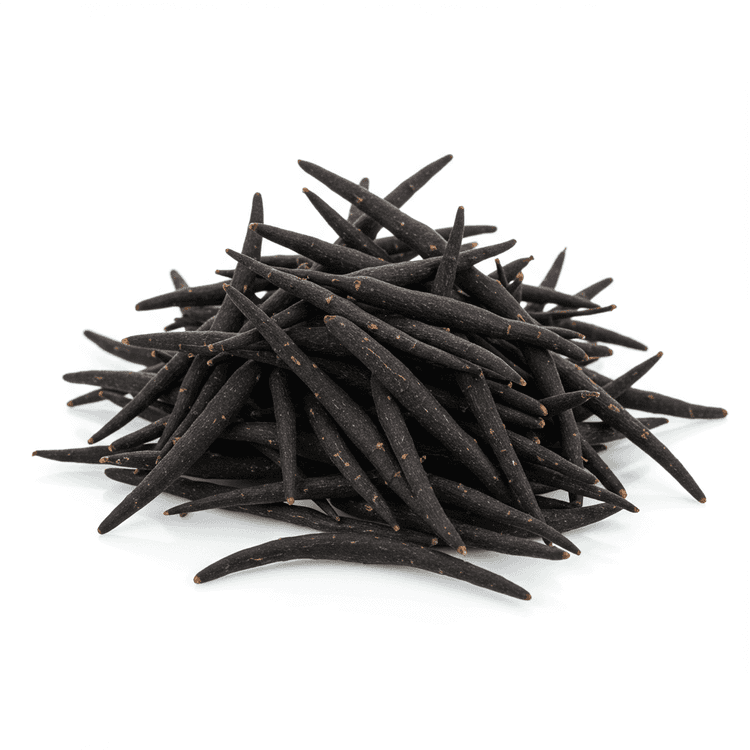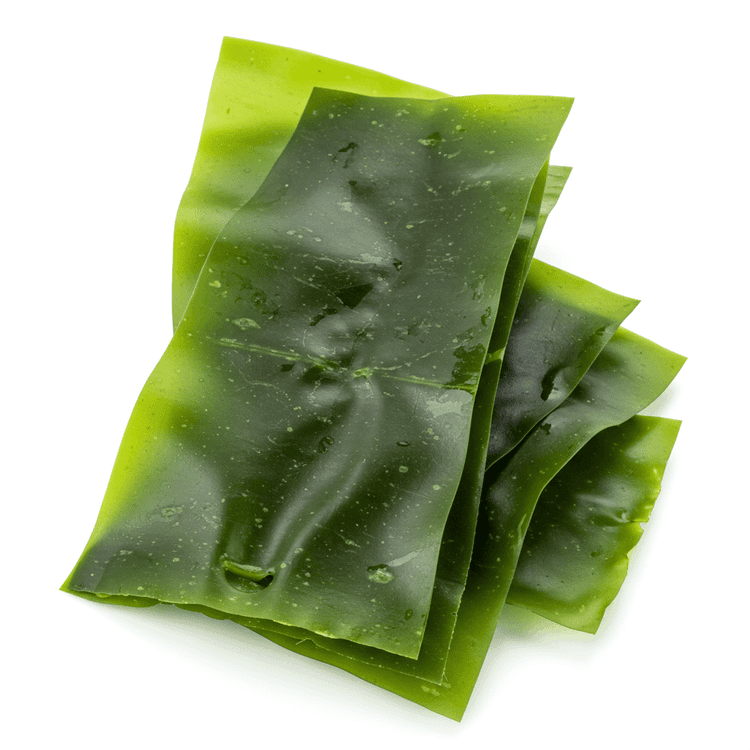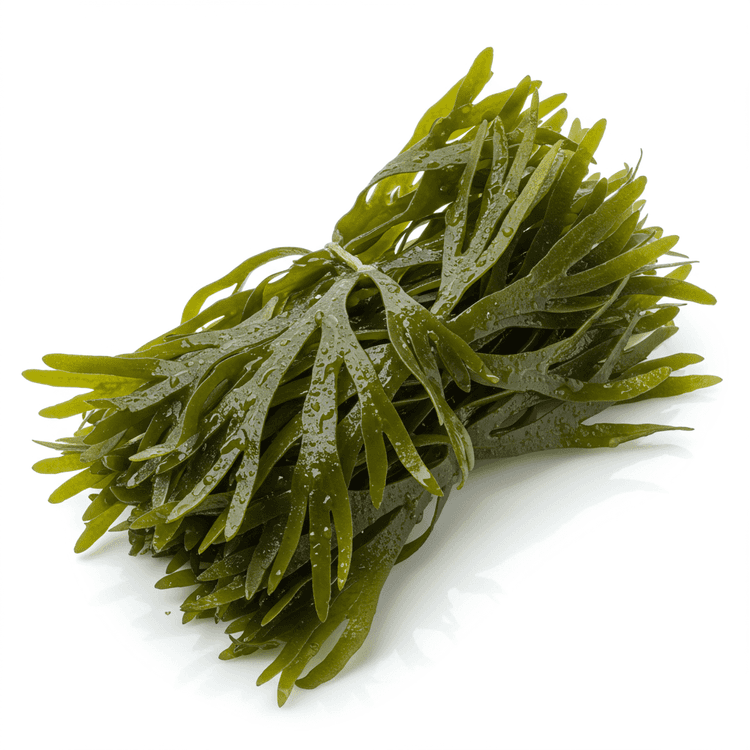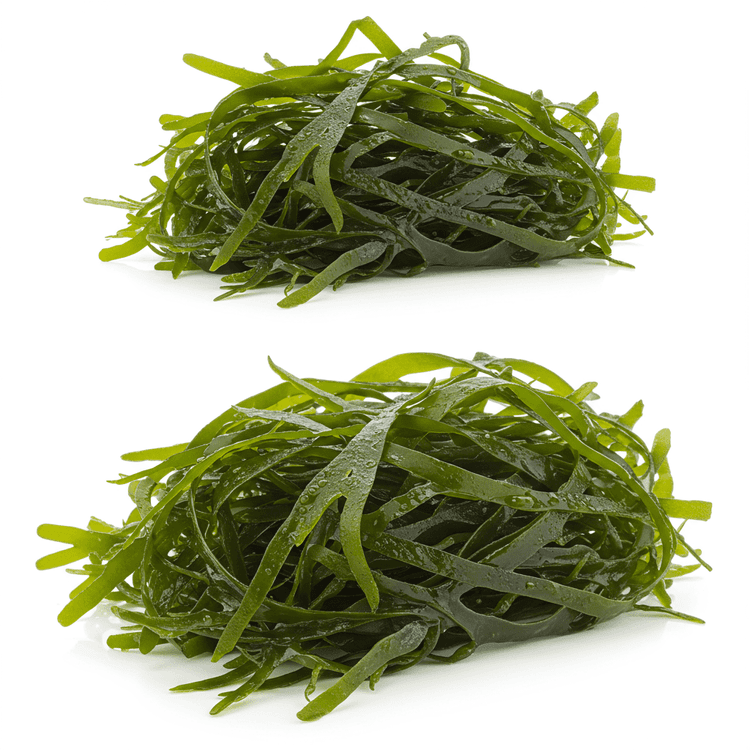
Hijiki
Hijiki is a nutrient-rich sea vegetable commonly used in Japanese cuisine. It has a dark brown to black color and a slightly chewy texture with a mild, earthy, and slightly sweet flavor. Often sold dried, hijiki expands significantly when soaked in water, making it a versatile ingredient for salads, stir-fries, and soups. Packed with dietary fiber, calcium, and iron, hijiki is a popular choice for health-conscious cooks looking to incorporate seaweed into their meals.
Common Uses
- Add soaked and cooked hijiki to salads for a nutritious and flavorful boost, pairing it with sesame dressing or soy sauce for a traditional Japanese touch.
- Stir-fry hijiki with vegetables, tofu, or meat for a quick and healthy side dish or main course.
- Incorporate hijiki into soups or broths, such as miso soup, to add depth of flavor and a unique texture.
- Use hijiki as a filling for sushi rolls or onigiri (rice balls) for a creative and nutrient-packed twist.
- Mix hijiki with rice or grains to create a wholesome and visually appealing dish with a hint of oceanic flavor.
- Blend hijiki into vegan patties or fritters for a plant-based recipe rich in minerals and umami taste.
Health Benefits
- Rich in dietary fiber, hijiki supports healthy digestion and helps maintain regular bowel movements.
- High in essential minerals like calcium and iron, promoting strong bones and preventing anemia.
- Contains antioxidants that help combat oxidative stress and support overall cellular health.
- Low in calories and fat, making it an excellent choice for weight management and heart health.
- Packed with iodine, which supports thyroid function and hormonal balance.
- Provides a natural source of vitamins A and K, essential for vision and blood clotting.
Chefadora AI is here.
Experience smarter, stress-free cooking.
Storage Tips
Hijiki should be stored in a cool, dry place in an airtight container to maintain its freshness and flavor. Once rehydrated, it should be kept in the refrigerator and consumed within 2-3 days. Avoid exposure to moisture and direct sunlight to prevent spoilage. For long-term storage, dried hijiki can be frozen in a sealed bag or container to extend its shelf life.
Marnirni-apinthi Building, Lot Fourteen,
North Terrace, Adelaide, South Australia, 5000
Australia






